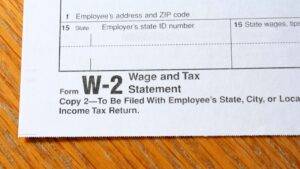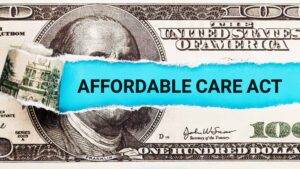
Two significant last minute changes will affect your clients:
- A federal judge enjoined nationwide implementation of the Department of Labor Overtime Regulations.
- The IRS issued Notice 2016-70 granted a delay for Form 1095 reporting to individuals.
Department of Labor Overtime Regulations Delayed Indefinitely. Federal Judge Amos L. Mazzant of the U.S. District Court for the Eastern District of Texas granted a motion temporarily barring the implementation of the December 1, 2016, Fair Labor Standards Act (“FLSA”) new rules on overtime pay from going into effect nationwide. A consolidated lawsuit was filed in September 2016 by 21 states and more than 50 business groups. Judge Mazzant concluded a plain reading of the FLSA demonstrated that Congress intended the “white collar” exemptions to apply to employees doing executive, administrative, or professional (EAP) duties, without reference to a minimum salary level. He also concluded that raising the salary basis test from $455 to $913 a week exceeded the Department of Labor’s delegated authority and supplanted Congress’ preferred duties test.
Tax practitioner note. Notify your business clients that pending subsequent judicial action, the December 1, 2016, implementation date of DOL’s Final Rule was postponed and employers need not adjust salaries upward in order to continue to claim exempt status from overtime rules. If wages have already been adjusted, it is unclear what the recision of the increase would mean. Have the client consult with his or her employment attorney.
Extension of Form 1095 Due Date for Insurers, Self-Insuring Employers, and Applicable Large Employers
On November 18, 2016, IRS issued Notice 2016-70, which extends the due date for the 2016 requirement to furnish ACA-related statements to individuals for insurers, self-insuring employers, and applicable large employers. Specifically, the IRS has extended the due date for furnishing the 2016 Form 1095-B, Health Coverage, and the 2016 Form 1095-C, Employer-Provided Health Insurance Offer and Coverage, from January 31, 2017, until March 2, 2017 (under §6055 and §6066).
The due dates for providing 2016 Forms 1095 to the IRS remain the same. Paper filed forms are due February 28, 2017, and electronically filed forms are due March 31, 2017. Only the date for providing forms to the individual was delayed.
Tax practitioner note.
(1) Because of the extension granted under this notice, some individual taxpayers may not receive a Form 1095-B or Form 1095-C by the time they are ready to file their 2016 tax return. Taxpayers may rely on other information received from their employer or other coverage provider for purposes of filing their returns, including determining eligibility for the premium tax credit and confirming that they had minimum essential coverage. Taxpayers do not need to wait to receive Forms 1095-B and 1095-C before filing their returns.(2) Notify business clients of the delay in providing Forms 1095 to their employees. You can also provide some hope to your client that if President-elect Trump succeeds in repealing the Affordable Care Act that this will be their last year struggling with the ACA reporting requirements.
Recent Stories


Trump Executive Order Directs Cannabis Rescheduling

Trump Accounts and New Form 4547


The ACA Enhanced Subsidy Expires




